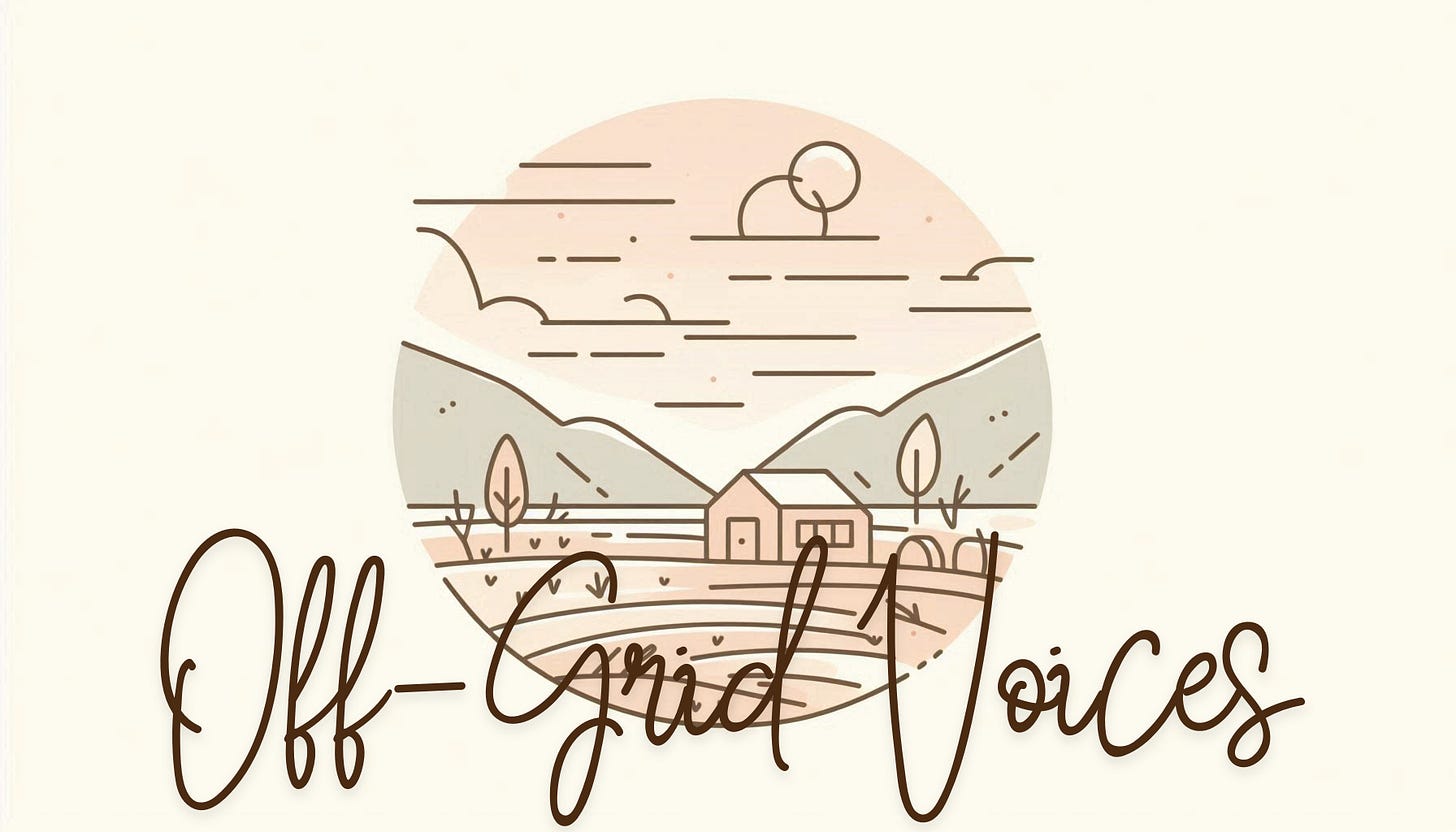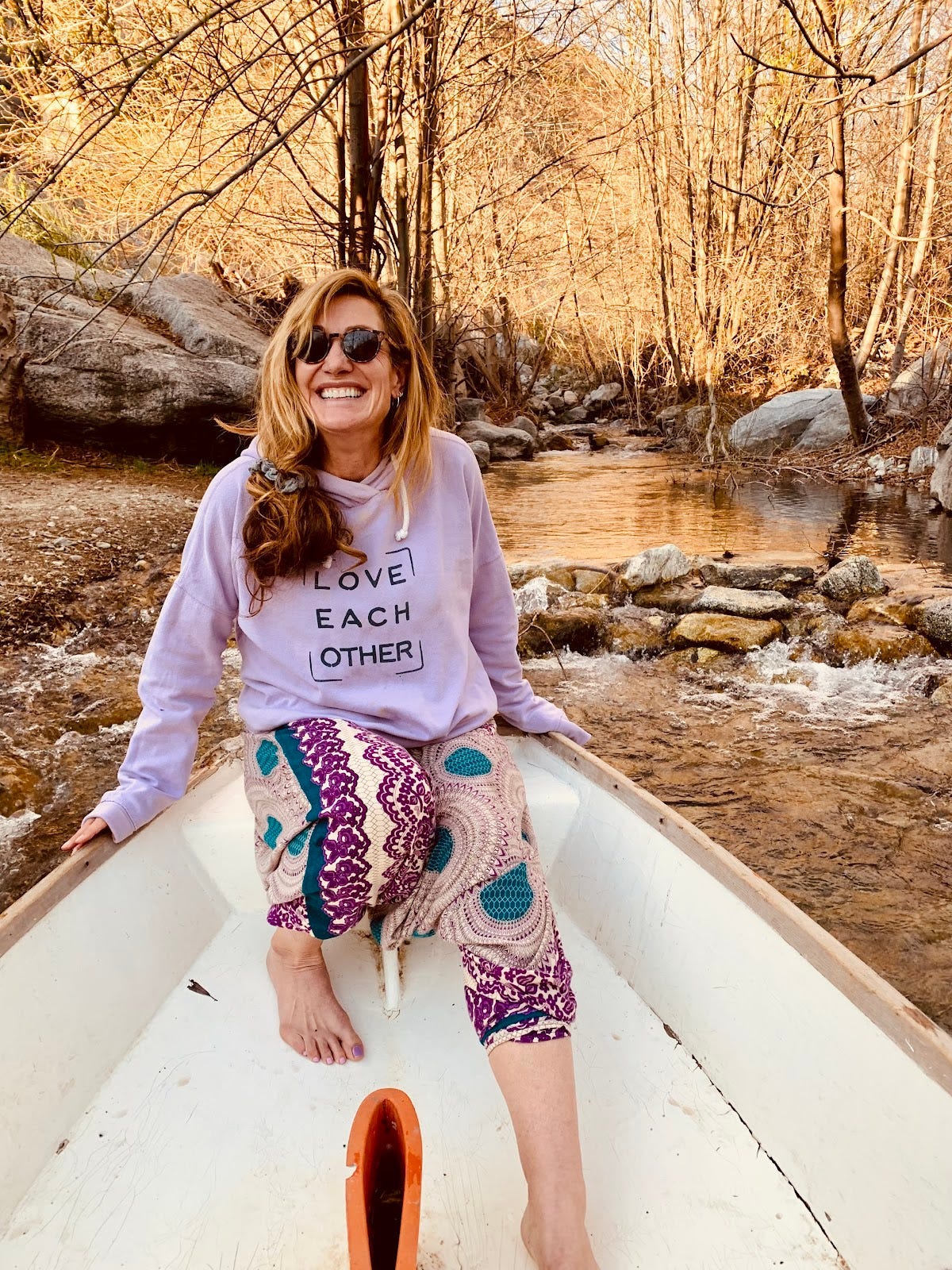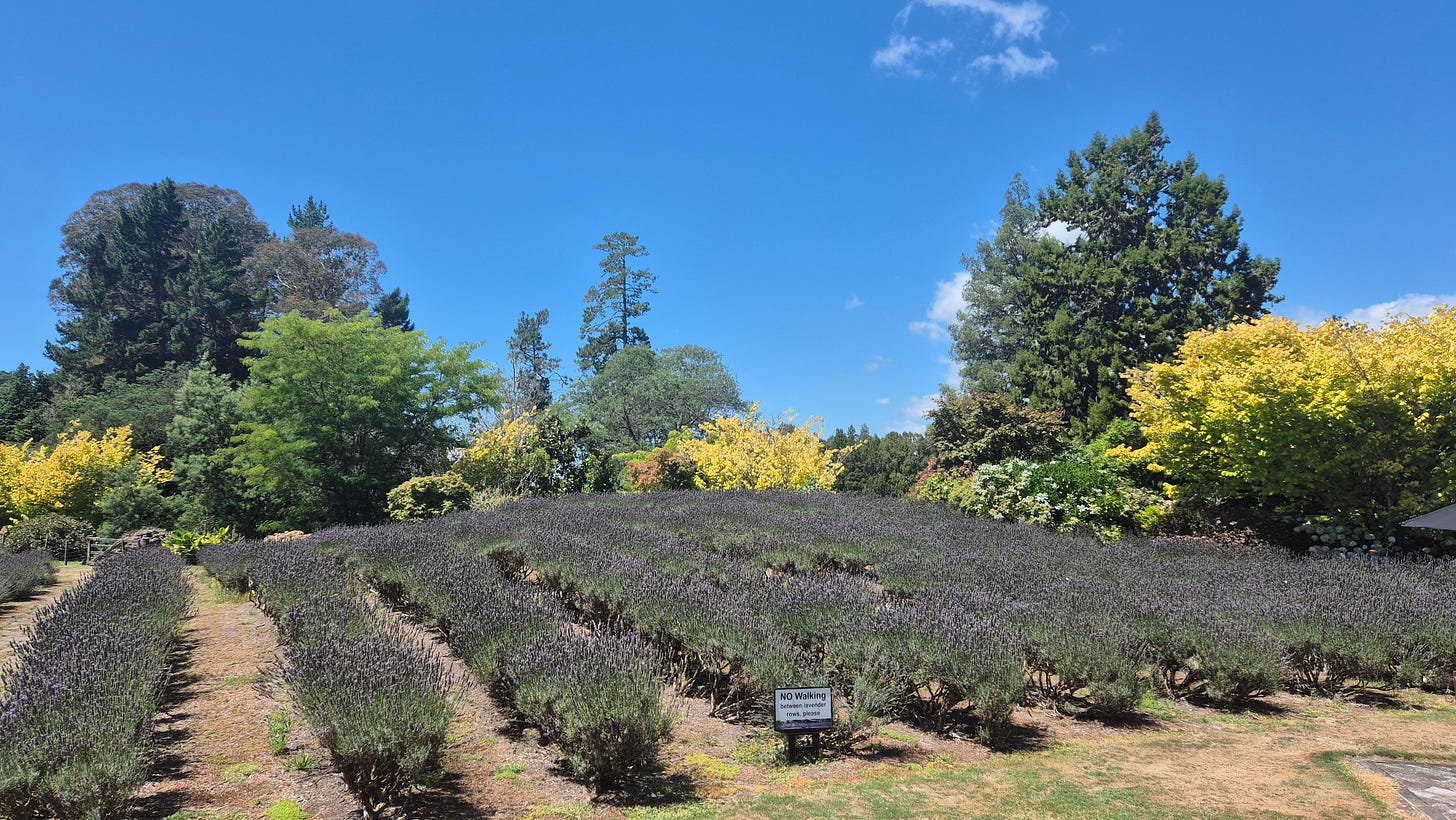Hi lovely reader 👋
Welcome to Off-Grid Voices, a series of written interviews with others who are out there living their best lives, living lives that are a little outside the norm, a little different. I’m hoping this series will inspire some of you who may be thinking about living a life off the grid, homesteading, travelling the world, doing #vanlife, or anything else that you may be considering. Hope you enjoy exploring these lifestyles with me. 😊
This week we’re talking with Michelle Dowd who writes on her Substack Forager Fridays where she writes about tips on foraging (literal and metaphorical), grounding in nature, and broadening your outdoor adventures, with explorations of rewilding.
Hi Michelle, let’s start with learning a bit more about you! Tell us a bit about yourself :-)
I’m so grateful to have connected to so many writers through Forager Fridays after my memoir, Forager: Field Notes on Surviving a Family Cult, a deeply personal account of my upbringing in an apocalyptic cult on an isolated mountain in the Angeles National Forest, came out last year. Raised in the wilderness, I learned survival skills like navigating by the stars and foraging for edible plants. These skills ultimately helped me escape poverty, illness, and the constraints of my upbringing. I am also a contributor to several publications, including The New York Times, The Los Angeles Times, TIME magazine, Alpinist, The Los Angeles Review of Books, and LA Parent Magazine. My writing reflects my connection to nature, resilience, and the transformative power of storytelling. Forager has earned widespread acclaim, offering an inspiring narrative of survival, self-discovery, and the healing potential of the natural world.
You’ve had quite the journey and a very interesting background, can you tell us a little bit more about that journey and how it led you to having a passion and love for foraging?
I am every girl I have ever been. They live inside me like a choir. The believer. The invalid. The seductress. The victim. The fighter. The heretic. The forager. The survivor. Uncivilized. Hungry. Angry. Wild.
And yet, learning to shed my skin has helped me inhabit new versions of myself. This is the paradox.
When a snake is ready to shed, it begins by secreting a fluid between its old and new layers of skin, loosening the connection. Its eyes turn cloudy, its color dulls, and it may become less active, even refusing to eat. To begin the shedding process, the snake rubs its head against a rough surface like a rock or tree, creating a small tear. It then pushes through tight spaces, using friction to peel away the old skin, usually starting from the head and working down its body. This process, which can take days or even weeks, allows the snake to emerge renewed, leaving behind a delicate, translucent husk of its former self.
Foraging was part of my upbringing in the cult, and I’ve absorbed it so that it’s still relevant to me today.
I’d love to know a bit more about foraging and the place it takes in your life? How often do you go out to forage, what kinds of things do you forage?
I’m not a professional forager, so I don’t rely on foraging for my income or as my primary food source, but I do eat something off the land that I didn’t grow every day, as a way of having a relationship with the earth.
What tips would you have for someone who is interested in learning the skill of foraging, where do we start?
The place to start is in your own neighborhood. With something like rosehips or nettles. Something easily identifiable and prolific in your region. Form a relationship. Understand the plant. Learn how to use it and when. And then add in another plant. Your knowledge and pleasure will grow through this process.
I really like that idea of starting with one plant, it makes the whole thing so much more manageable! What would be the biggest benefits of foraging that you see?
8,000 years ago, foraging was universal. That is how humans lived. It may be rare as a way of life now, but the strategies are inside of all of us. You can find what you need, wherever you are. It’s in your DNA. We are all foragers.
Foraging is knowing what you need. It’s making the most of what’s available. It’s knowing what to say yes to. What to say no to. And why.
For millions of years, our ancestors were hunters and gatherers. But more gatherers than hunters. We relied on our ability to gather, which is another word for foraging. Animals lived wild and we lived wild among them. We lived with the seasons and found what we needed, wherever we were.
This is still true today.
Wild foods in the U.S. were stigmatized by Europeans who wanted the land. They tried to make indigenous peoples ashamed of their diet, saying it wasn’t civilized. Instead of learning from the people who lived off the land, they denigrated that knowledge and have almost entirely eradicated it.
People who forage now might give practical reasons like nutrition, taste, variety, thrift, emergency preparedness, convenience while on the trail, or freedom from the market economy, and those benefits are real. But the reasons people forage are almost always more personal. It puts us in touch with a natural world that dazzles, excites, and amazes. And for many of us, it’s spiritual as well. It connects us with the other species, the planet, all that we come from, and all that we are.
What are the challenges or things to look out for?
I encourage people to start local, with plants that aren’t easily mistaken for other plants. I also advise, don’t start with mushrooms. The potential risks are too great.
What is your most favourite resource about foraging?
My favorite resource is the Seek app, which is available for free on your phone.
When I wrote a book about foraging, it turned out to be largely about my mother, a woman who was clearly a paradox. She was a right wing fundamentalist christian who believed the world was 6,000 years old. She believed a man is the head of the household because God is a father. And yet, she had such deep knowledge and reverence for plants and animals and she protected them with greater intensity than she cared for her children. She said she believed in God the father, but she taught me to see God in every living thing.
People don’t always fit in boxes.
My mother taught me mutualism, rudimentary environmentalism and how to survive when systems break.
My mother taught me that there are four kinds of yucca moths, each adapted for one species of yucca,” she explains. “The female moth gathers pollen from a flower, rolls it up and takes it to another flower. She then lays a few eggs inside the flower and inserts the pollen. The pollinated yucca flower becomes a pod filled with seeds, which the moth larvae eat before becoming moths. The larvae eat about half of the eggs a yucca plant produces. Neither the yucca plant nor the yucca moth can exist without the other. No other insect pollinates the yucca plant, nor does the yucca moth pollinate any other plant. They are dependent on each other for their existence, which is called mutualism.
And I have found in my life that foraging for food can help you survive, but mutualism is the way to thrive. We need to provide support for each other, like the plants do.
You’ve recently built a tiny house too, tell us a bit about that experience: what are your thoughts on tiny living, pros and cons?
Building a tiny cottage is a dream come true for me and I recommend it with my whole heart. Please come over to Forager Fridays and I’ll tell you all about it!
Thank you so much Michelle for participating in this interview and telling us a little bit more about yourself! I loved getting to know a bit more about your journey and I feel a bit more comfortable trying out foraging myself now!
Something that inspired me this week:
I’ve been continuing my travels around New Zealand - showing mum all the beautiful spots this country has to offer. So, this week, I’ve been feeling inspired by the stunning coastline around the East Cape. Here’s some pictures for all of you to enjoy:
If you enjoyed this article, consider becoming a paid subscriber. Paid subscribers get one extra audio post each week. By becoming a paid subscriber you help keep this publication going and growing. A yearly subscription is 50 NZD (28 USD) that’s the price of a nice book.















Thank you for sharing your interview with Michelle Dowd in Off-Grid Voices. Her journey into foraging and off-grid living is truly inspiring, highlighting the courage it takes to embrace a lifestyle that aligns with one's values. Your conversation sheds light on the profound connection between nature and personal well-being, encouraging readers to explore alternative paths to fulfillment.
Wow, that's a fascinating life story, and a development that probably took a huge amount of courage!
Great thoughts on foraging as well. I love nettles - they are one of my favourite foods and it is still a miracle to me that I can collect them for free!